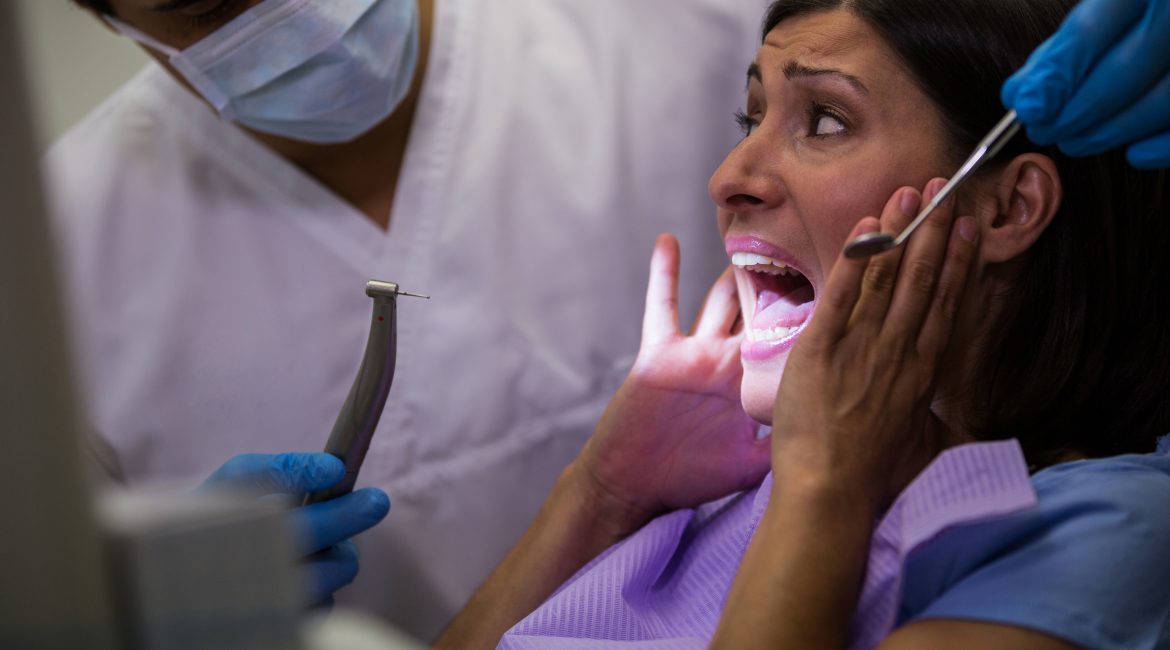Temporomandibular joint (TMJ) disorders are a common source of jaw pain and discomfort, affecting millions of individuals worldwide. In Vienna, VA, Just Smilez Dental is dedicated to providing comprehensive care for patients experiencing TMJ-related symptoms, offering personalized treatment options to alleviate pain and restore optimal jaw function. In this blog, we’ll delve into the complexities of TMJ disorders, exploring their causes, symptoms, and effective treatment options available to Vienna residents.
Understanding TMJ Disorders:
The temporomandibular joint (TMJ) is the joint that connects the jawbone to the skull, allowing for smooth movement during activities such as chewing, speaking, and yawning. TMJ disorders refer to a group of conditions that affect the TMJ and surrounding structures, leading to pain, stiffness, and dysfunction in the jaw joint and muscles.
Common Causes of TMJ Disorders:
Bruxism: Teeth grinding or clenching can place excessive strain on the TMJ and surrounding muscles, leading to inflammation and discomfort.
Jaw Misalignment: An abnormal bite or jaw misalignment can disrupt the balance of the TMJ, causing pain and dysfunction.
Trauma or Injury: Direct trauma to the jaw or face, such as a blow or impact, can damage the TMJ and result in ongoing pain and dysfunction.
Stress and Anxiety: Psychological factors such as stress and anxiety can contribute to TMJ-related symptoms by causing muscle tension and jaw clenching.
Arthritis: Degenerative joint diseases such as osteoarthritis or rheumatoid arthritis can affect the TMJ, leading to pain, stiffness, and reduced mobility.
Poor Posture: Habitual poor posture, especially when sitting or sleeping, can strain the muscles and ligaments surrounding the TMJ, exacerbating symptoms of TMJ disorder.
Common Symptoms of TMJ Disorders:
Jaw Pain or Tenderness: Persistent pain or tenderness in the jaw joint, particularly when chewing, speaking, or yawning.
Facial Pain: Pain or discomfort in the face, temples, or ears, often accompanied by headaches or migraines.
Clicking or Popping Sounds: Audible clicking, popping, or grinding noises when moving the jaw, indicating dysfunction within the TMJ.
Limited Jaw Movement: Difficulty opening or closing the mouth fully, sometimes accompanied by jaw locking or stiffness.
Muscle Tension: Muscle tension or spasms in the jaw, neck, shoulders, or upper back, contributing to pain and discomfort.
Treatment Options for TMJ Disorders:
Custom Nightguards: Custom-fitted nightguards are designed to reduce teeth grinding and clenching during sleep, alleviating pressure on the TMJ and preventing further damage.
Orthodontic Treatment: Correcting bite misalignments or dental malocclusions through orthodontic treatment can improve TMJ function and alleviate associated symptoms.
Stress Management Techniques: Practicing stress-reduction techniques such as relaxation exercises, meditation, and yoga can help alleviate muscle tension and reduce TMJ-related pain.
Physical Therapy: Targeted exercises, stretching techniques, and manual therapies can help strengthen jaw muscles, improve range of motion, and reduce TMJ discomfort.
Medication: Nonsteroidal anti-inflammatory drugs (NSAIDs), muscle relaxants, or tricyclic antidepressants may be prescribed to alleviate pain and muscle tension associated with TMJ disorders.
Trigger Point Injections: Injections of corticosteroids or local anesthetics into trigger points within the jaw muscles can provide temporary relief from TMJ-related pain and muscle spasms.
Splint Therapy: Oral appliances or splints may be recommended to stabilize the jaw joint, alleviate pressure, and improve jaw alignment during sleep or periods of jaw rest.
Conclusion:
TMJ disorders can significantly impact quality of life, causing pain, discomfort, and functional limitations in everyday activities. In Vienna, VA, Just Smilez Dental offers comprehensive care for patients experiencing TMJ-related symptoms, providing personalized treatment options to address the underlying causes and alleviate pain. By understanding the causes, symptoms, and treatment options for TMJ disorders, patients can take proactive steps towards restoring optimal jaw function and enjoying a pain-free smile.

